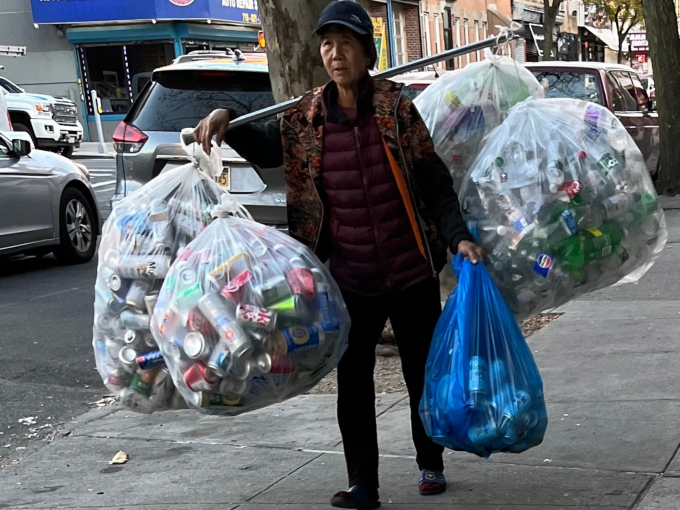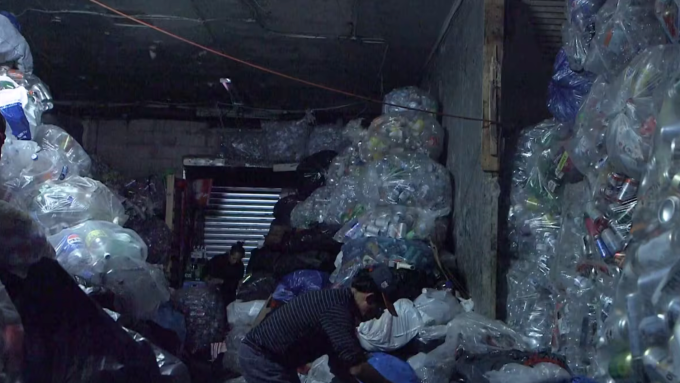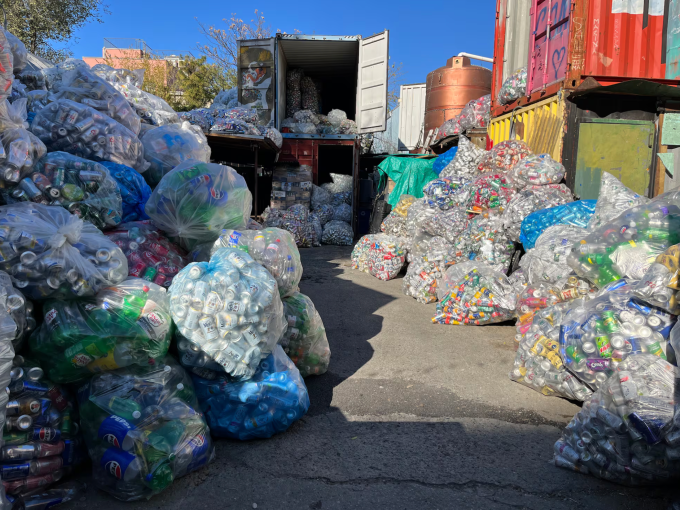Scrap collecting, the main source of income for many immigrants in New York (USA), is increasingly precarious.

Every morning at 7 a.m., Graciela Cieza and Robert Romero, a Peruvian immigrant couple, open the doors of their recycling facility in Queens, New York. The area is filled with hundreds of large bags of glass bottles and cans, sorted by brand, product, and size.
The Ciezas have worked at this scrap yard for eight years. They became owners of the facility nearly half a year ago.
"The previous owner declared bankruptcy and closed the place because there was no more income," said Ms. Cieza, 65, who came to the United States with her husband and two children 12 years ago.

Recycling in New York is a chain process. Consumers drop bottles or cans into public recycling bins. Pickers collect them, take them to a recycling center, and receive 5 cents for each item.
After collection, buyers will sort the items by brand, container and size to sell to distributors, which can be container manufacturers or bottling plants. Each product is sold for 8.5 cents.
New York’s recycling ecosystem is dominated by immigrants and seniors who can earn $30 a day picking up trash on the streets or $40 a day running collection centers. But over the past 15 years, their income has stagnated or even declined.
According to the New York Public Interest Research Group, 150 of the state’s 700 recycling centers have closed in the past two years because they are no longer profitable. Regulators warn that without higher prices for recyclables, more and more “junk” businesses will go bankrupt.

Jade Eddy, owner of MT Retornables in Queensbury, a member of the Empire State Retorn Association, is considering closing her scrap yard because of losses.
"I am receiving poverty alleviation benefits after using all my retirement savings and mortgaging my house to keep my business afloat," said the 40-year-old woman.
In addition, bottling companies with their new "return the bottle and pay the deposit" policy also threaten private scrap yards.
A report by Sure We Can, a drop-off center and community space for independent recyclers in Bushwick, Brooklyn, points to the threat that bottle drop-off centers pose to independent collectors, a group that is largely made up of immigrants, nearly half of whom are from Latin America, and earn as little as $400 a month.
Ryan Castalia, director of Sure We Can, said that over the past 15 years, prices in the US have increased by 36.4%, but during the same period, profits at buyback centers and recyclers have remained the same.
“I hope the government will protect the environment by protecting workers' living standards and developing green infrastructure in the state,” Castalia said.
Angle, a 50-year-old Dominican Republic native, has been collecting recyclables since 2022, after losing her job as a restaurant chef in Manhattan. After filling a large bag with bottles, she takes it to a recycling center in Queens.
"The pay is low, but this job helps me support three children and pay the rent," Angle said.
Pedro Romero and Josefa Marín, a couple who immigrated to the United States from Mexico, also worked as "scrap collectors" for many years because they had no pension. They collected scrap every day and sold it to the Sure We Can center near their home.
"If this scrap purchasing unit also closes, we will return to Mexico because there is no way to survive," Pedro said.
TB (according to VnExpress)